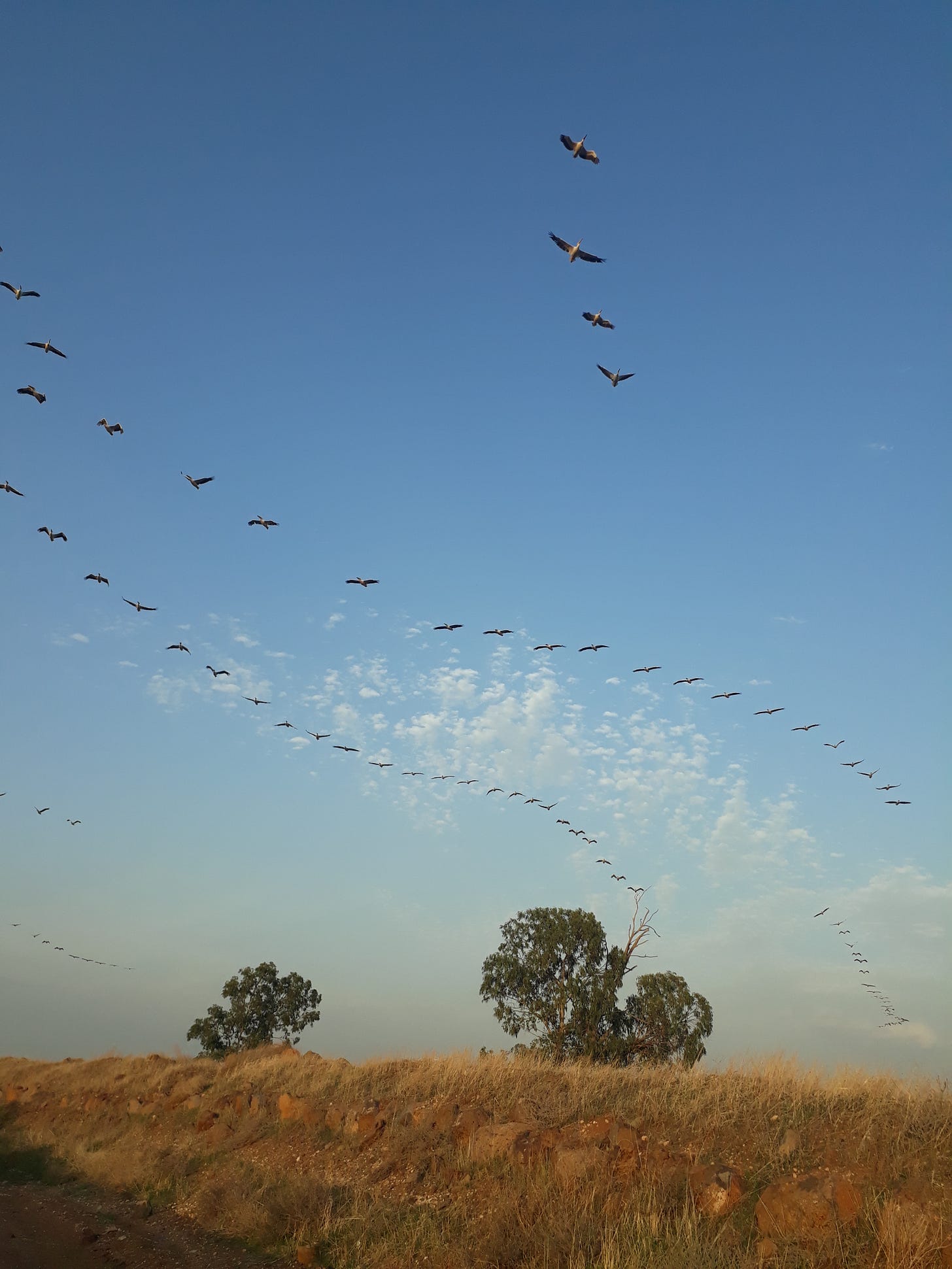I’ve been trying to write regular updates on Palestine because of the imperative of keeping attention on Israeli atrocities, and because people told me it was helpful. I’ll keep doing it in 2024, but I’ve been balancing that imperative against never wanting to write before I have something to say, and the sense that sometimes the form it comes out in can benefit from a further week of contemplation (or editing!).
I will be continuing, with millions more, to share thoughts and updates on the Palestine situation on Instagram and Twitter. The Israeli hope and intent is that Western attention will be turned-off over Christmas (ironic, obviously, given that Jesus was a Palestinian born on Christmas Day in Bethlehem), and I would never fulfil that Israeli wish for silence. The cycling club in Gaza I’ve long had a relationship with, Gaza Sunbirds, are still facing horrors on a daily basis, and I try to keep up with, and share, their news whenever I can.
In a final Köprü update for 2023, however, I wanted to say something with some optimism. I don’t believe in hope or optimism for its own sake, and I always liked the maxim that I am neither an optimist nor a pessimist— I am determined. This perspective, I feel, ensures that our own actions are, as they should be, centred, giving a greater sense of our own agency in a world we always have the power to act upon.
Nonetheless, I do believe it important to have optimism. This is primarily because there are always sources of it, but also because —particularly in such sinister times— it can help us envisage the route out of them.
Hard and painful as everything continues to be, for a few core reasons I am optimistic for Palestine. I am optimistic because the national history of Palestine is centuries old and, more importantly, has a secular and inclusive history that the Israelis and the so-called “Jewish state” have never achieved or even aspired to. Ottoman Palestine is the most recent incarnation of this, but Palestine as a place and identity has been around longer than that. Palestine and the Port of Jaffa appears with Herman Melville in Moby Dick in 1851, with Dostoevsky in The Idiot in 1869, with Shakespeare in Othello in 1622.
Contrary to the Zionist lie that Palestine was “empty”, it has the sort of rich, deep history that history itself teaches us cannot simply be denied or usurped, particularly not by a brutal, exclusivist state project that has existed since only 1948. The crimes of the Israelis, their apartheid and their genocides, not to mention the sadism of their methods and broadcast, is fast becoming unsupportable among world Jewry, particularly its younger generations. In contrast and in direct proportion, a Palestinian identity — the older of the national identities anyway — becomes the less-tarnished of the two between the Mediterranean and Jordan River. Increasingly I see Jews —some even with Israeli citizenship—more at-home with use of the name Palestine, which cuts them effortlessly from the horrors and moral burdens of a Zionism they have in many cases always opposed anyway.
Aside from the land of Palestine, Judaism itself is the other age-old entity being contested in this conflict. Just as Palestine existed for centuries before and without Zionism, so too did Judaism exist two thousand years without Zionism. Without genocidal European prejudice and atrocity visited upon Jews, Zionism would almost certainly have remained a marginal project for the religiously overzealous.
From such a beginning as this, the Israelis could perhaps once have built a sustainable state project in Palestine, but only by seeking to work with and not against basic principles of humanity — not least of all equality and justice. As ISIS already showed the world in recent years, attaching an exclusive and extreme version of a religion to the ugly realities of a nation state, or the imperatives of holding territory, is hard to a point of impossibility.
It is my optimistic faith that of the two contentions, Judaism or Zionism, it is Judaism that will prove the more durable and ultimately more popular. The Israelis have turned the un-safe space that Jews shared with other minorities in Europe into an un-safe space for themselves and Palestinians in Palestine, and this is no reliable basis on which to put down roots in the stubborn earth of history. What we have seen these past months and with unbearable cruelty is very clearly a European holocaust that was not at all resolved but only displaced, and the only remedy to such an undeniable and painful failure will ultimately be a free Palestine.
This then is the trajectory for optimism around which I orientate myself. An inclusive Palestinian ideal will win-out over an exclusive Israeli one, just as a spiritual Judaism will win-out over a nationalistic Zionist one. None of this is easy, it doesn’t preclude the need to act and to do so with urgency, to support Palestinians with all we have, but it is in this longer understanding of history in which I see a future with more justice and optimism in it than the horrors of the present.
It is in this direction that in 2024 I will be trying to push the moral arc of the universe. I hope to see you on that arc, and I hope that together we can see it bend.




